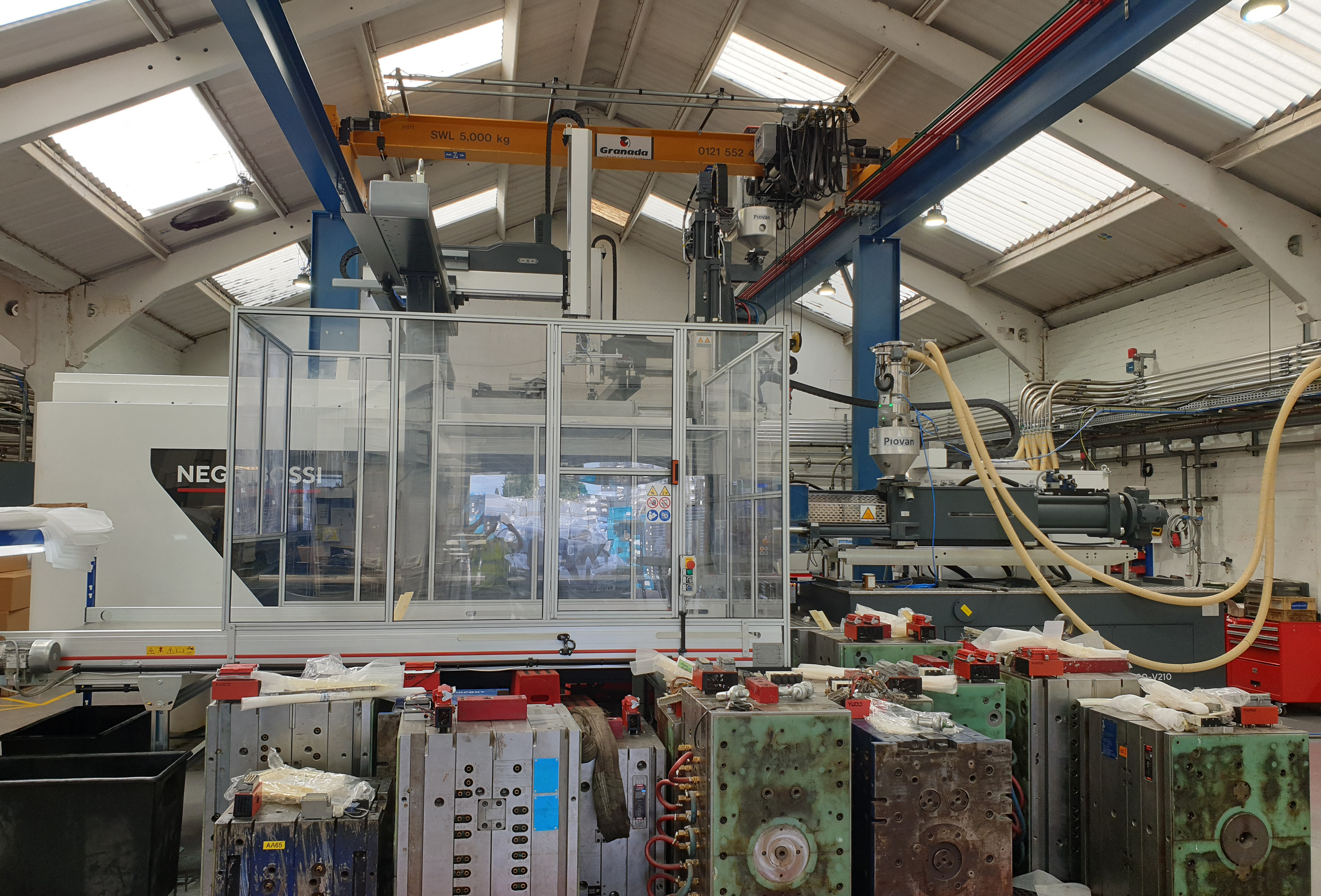Originally named Plated Plastic Developments, Birmingham based Quality Plated Plastics, was founded in 1965. Following the installation of a state-of-the-art specialist plastic plating plant in 2008, the company rapidly expanded, allowing it to penetrate the automotive market. Further plant upgrades in 2012 enabled the company to treble the output of satin finishes, meeting the growing demand of major automotive OEM’s.
At the end of 2014, a new ‘mould for plating’ facility was created, allowing some key premium brand automotive companies to shorten their supply chain. Several Negri Bossi injection moulding machines were installed, all customised for the production of PC/ABS. The specification included polymer specific plasticising screw profiles and smaller than typical shot weights when compared to ‘trade moulding’ machines. This provided:
- Superior polymer processing and product finish
- Minimal chance of contamination
- Reduced residence time
- Greater shot-to-shot repeatability
The mould shop quickly grew, by mid-2018 having five machines from 55T to 500T locking force. Sytrama robotic cells were also installed, allowing the company to minimise the handling of components.
The investment included laboratory facilities for the testing of plating chemicals, applied plating thicknesses and thermal cycling and humidity testing to PV1200. The net result was the creation of class-leading product quality.

In January of this year, an additional 130T Negri Bossi CANBIO machine and 500T MULTIMAT machine were delivered. This followed the construction of a new 14,000 square foot warehouse that subsequently allowed the mould shop to be expanded into a newly vacated area. A new chilled water system and a dedicated in-house tool maintenance department was implemented in the major upgrade.
The new MULTIMAT machine, as well as adding additional large tonnage capacity, is specified to handle a variety of future twin-shot projects. The machine has an additional vertical injection unit that will allow the production of components with two distinct material types, removing the need for assembly. By combining plating grade ABS with non-plating polymers such as nylon and TPE, part finished components can be produced without the need for product masking.
The machine has an integrated servo-powered rotary table with multiple water circuits. It is also specified with oil circuits for core pulling functions and part ejection. In addition, a frame-mounted Sytrama robot can service ‘tool transfer’ type moulding and de-mould finished components.
When asked about the recent mould shop expansion, QPP Managing Director John Timmins commented,
“As around seventy percent of our ‘Mould for Plating’ work is automotive, we need to cater for the steadily increasing trim specification of premium brand models. As well as offering faultless gloss and satin chrome finishes, we have now prepared for an increased demand for partly finished dual material components. OEM recycling targets mean that these components are best manufactured within a single moulding operation and plating process, i.e. without the need for an assembly stage”
